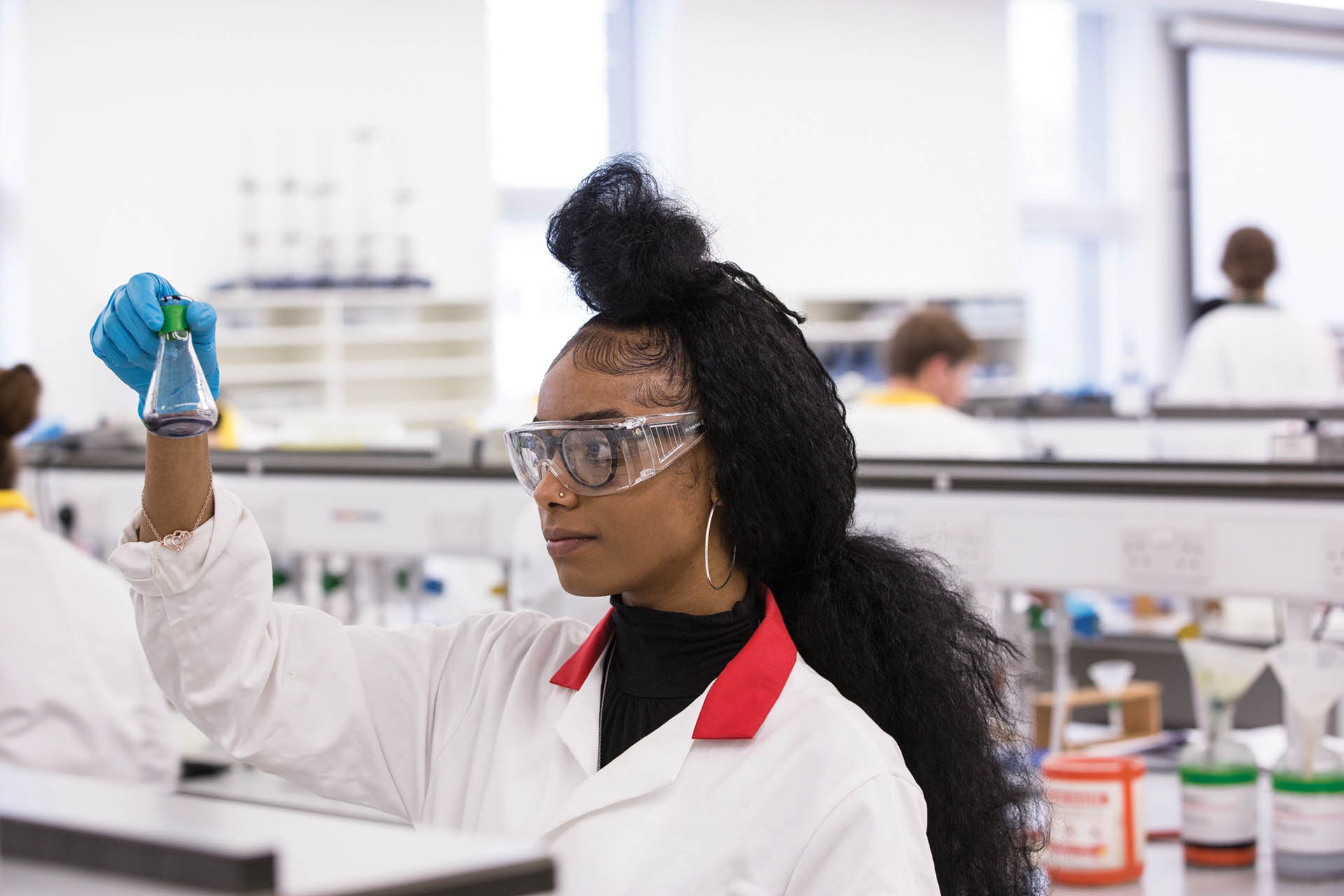Development and Evaluation of Conjugation Processes for a Novel Alkaline Phosphatase for Commercialisation
A conjugated novel alkaline phosphatase with superior activity could lead the way for developing sensitive diagnostic tests.

Alkaline phosphatase is an enzyme used in blotting, histochemistry and a wide range of lab experiments (assays) to detect very small amounts of target molecules in lab samples. It is commonly used in assays known as ELISAs (Enzyme Linked Immunosorbent Assays). This is when an enzyme (such as alkaline phosphatase) is linked to an antibody – which functions to create a positive result (e.g. a colour or fluorescence change) if a target molecule is present in a lab sample. Alkaline phosphatase can also be used in the detection and diagnosis in a wide range of disease states using clinical samples e.g. blood, plasma or urine.
Sekisui Diagnostics (UK) Limited have developed an alkaline phosphatase which has unique properties, in particular high enzyme activity, which gives potential for increasing the sensitivity of reagents in a variety of laboratory applications. This could allow researchers to detect small concentrations of target molecule in a sample, which might not otherwise be detected, thus preventing false negative results in the lab or in clinical samples.
The result for Sekisui Diagnostics is they can move strongly into the global alkaline phosphatase market ($25m pa). The University of Kent have used their expertise in chemical conjugation methods to generate conjugated alkaline phosphatase reagents (utilising the Sekisui enzyme) that have superior activity in laboratory assays in comparison to competitor enzymes.
The Challenge
Sekisui Diagnostics have developed a novel bacterial alkaline phosphatase with superior activity compared to competitor alkaline phosphatase products. However, this product was difficult to promote in the market due to its unique properties and required further R&D into:
- The ability to conjugate (join) to specific molecules (e.g antibodies) and
- The ability to investigate a range of conjugation methods to find the best conjugation route.
Once completed, Sekisui could then market the product for use in diagnostic assays and thus gain a global share in the alkaline phosphatase market (approx. $25m pa). The University of Kent developed a range of conjugation methodologies that could be used to prove alkaline phosphatase can be conjugated to antibodies and define what the best approach would be for optimal conjugation.
The Approach
The project team at the University of Kent included both Prof Mark Smales and Dr David Beale from the School of Biosciences. They worked on a combination of approaches to determine the best route for conjugation depending on the reactive side chains available. For this, ‘click chemistry’ was used. The ambition was to find an approach to bind alkaline phosphatase to an antibody (for example) to satisfy certain criteria e.g. modular, high yielding and maintaining enzyme activity. The researchers successfully conjugated the Sekisui alkaline phosphatase to an antibody using a copper free click chemistry approach based on an azide-alkyne cycloaddition reaction. The resulting conjugated alkaline phosphatase was then compared to other commercially available alkaline phosphatases and showed superior activity compared to competitors.
The team also started to investigate site-specific thiol-based conjugation and showed that this approach could be taken for more specific binding and to reduce the levels of heterogeneity of the conjugate produced.
The Outcome
The overall outcome of this work is an effective conjugation strategy for the Sekisui alkaline phosphatase that can be utilised by end-users to develop sensitive diagnostic reagents, thus enabling Sekisui to more confidently market this product. Sekisui have already shared the findings of the work via a webinar (April 15 2021), which has stimulated interest, reflected by new customer orders of Smartbond Alkaline Phosphatase. To attract further business, Sekisui plan to support the University of Kent with publication of findings in a scientific journal, including the conjugation method, in a peer reviewed journal and update its technical product documentation to share with prospective customers developing immunodiagnostic assays.
Next Steps
Sekisui continue to explore ways to work in collaboration with the University of Kent. The researchers at the University of Kent have already been awarded ‘Knowledge Exchange Innovation Follow on Funding’ to continue research into this area.
